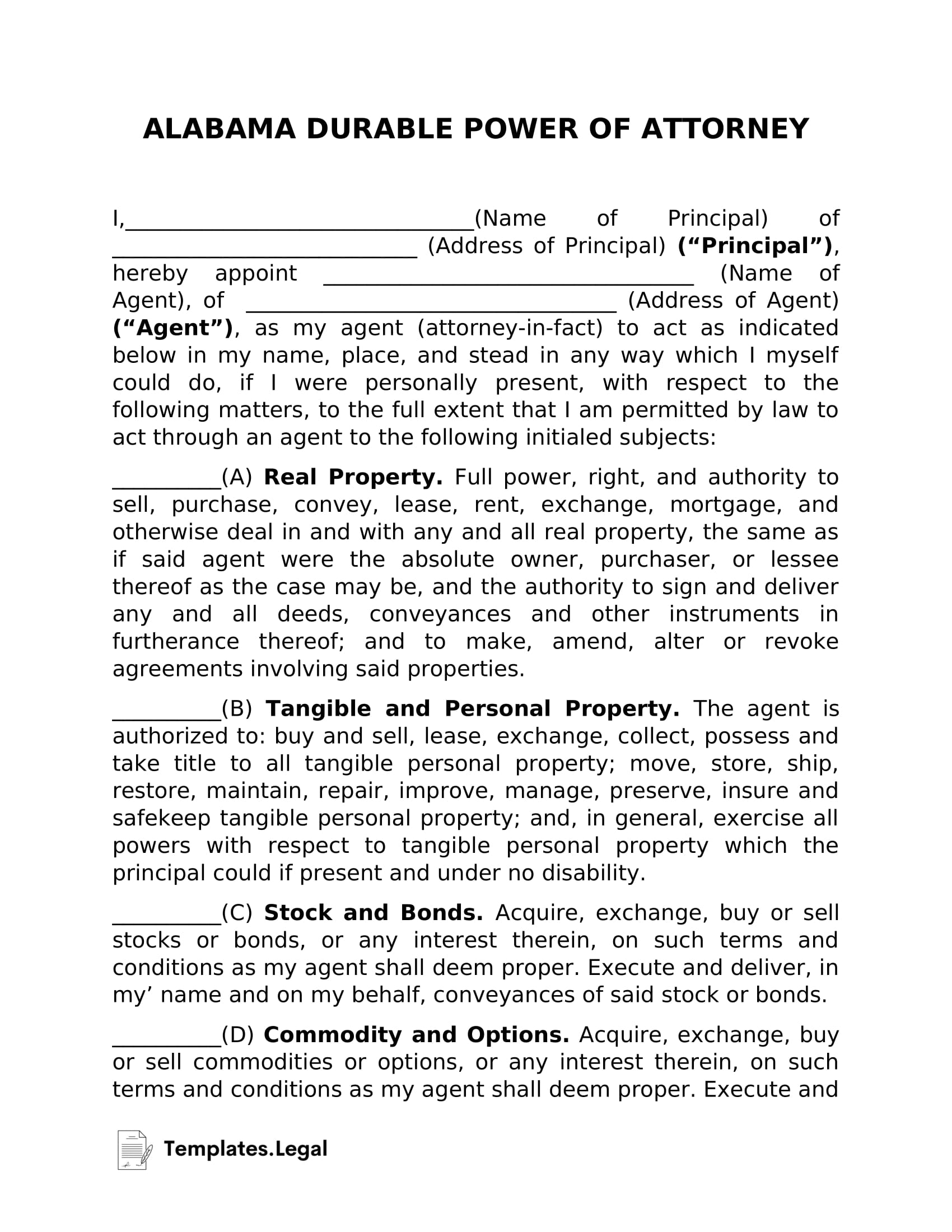
Power of Attorney is an authorization that grants someone the power to represent you when handling financial, legal, or medical matters. In Alabama, the status is durable by default. Durable power of attorney is a type of authorization that doesn’t end if the principal becomes unable to make decisions, for instance, due to an illness or accident. However, you can add a section to your form to limit the power you’re granting.
Contents hideYou can find more information about power of attorney in Alabama Code 26-1-2.
Alabama uses a type of POA called uniform power of attorney. When you fill out a power of attorney Alabama form, it grants certain rights to your representative by default.

Durable power of attorney means that the person you appoint can conduct financial transactions, enter contracts, and make important decisions on your behalf. This authorization won’t change if you become ill or incapacitated.
Depending on the wording you use, you can designate someone as your representative right away or have the status go into effect if you become incapacitated.
In Alabama, power of attorney will remain in effect until you issue a revocation.
The main difference between durable and general POA is that general option ends if you’re no longer able to approve it due to illness or an accident.
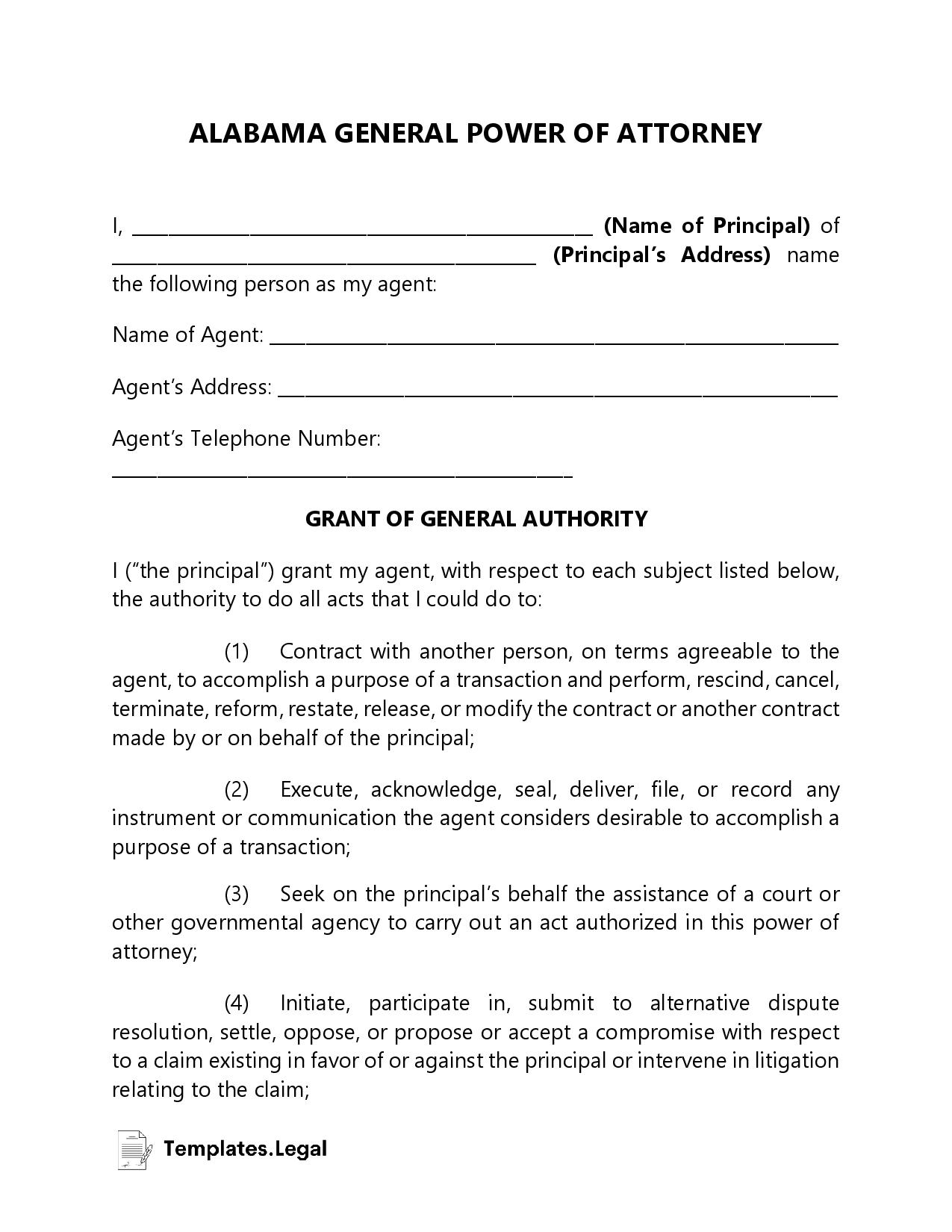
Remember that the durable state is the by-default status in Alabama. If you want to grant general power of attorney to someone, you’ll have to add a clause on the form you sign.
Limited power of attorney allows you to delegate the authority to conduct a specific task. You can grant limited rights until a specific date, or until your representative completes a task.
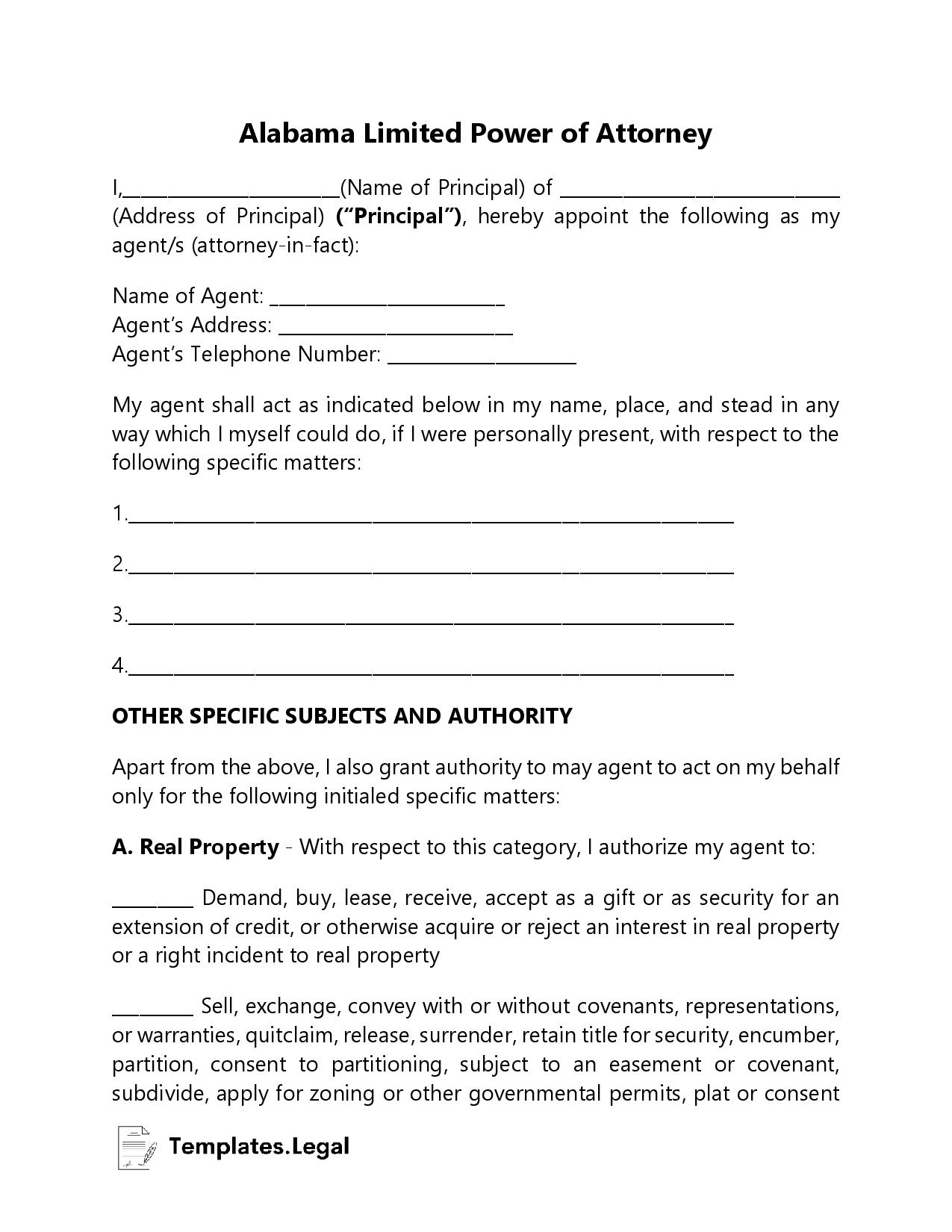
Medical power of attorney grants a representative the authority to make important medical decisions for you. Keep in mind that state laws forbid healthcare providers from using the document as a condition for receiving care.
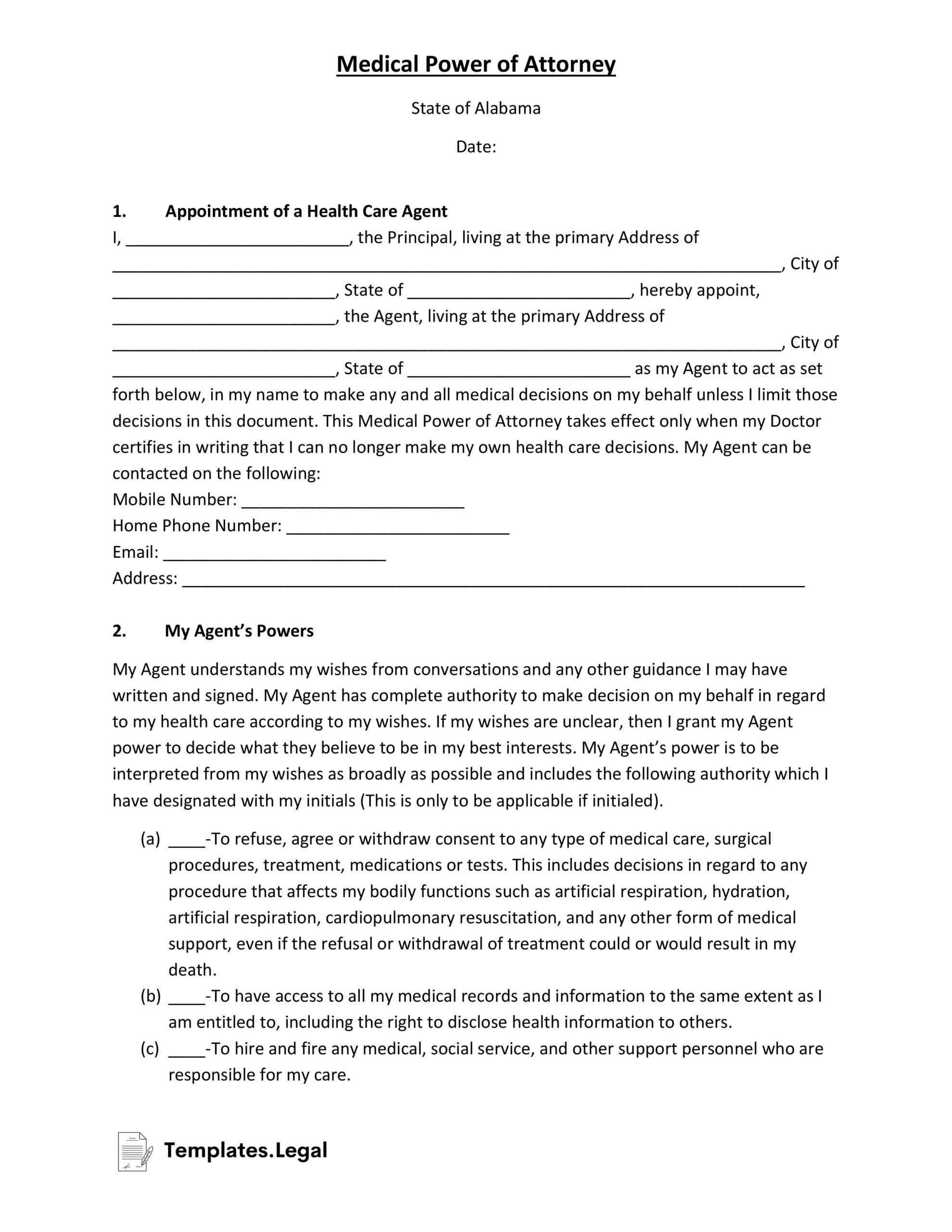
It’s possible to grant power of attorney to appoint someone to care for a child. This can go into effect right away or in the event that the parents or guardian become incapacitated.
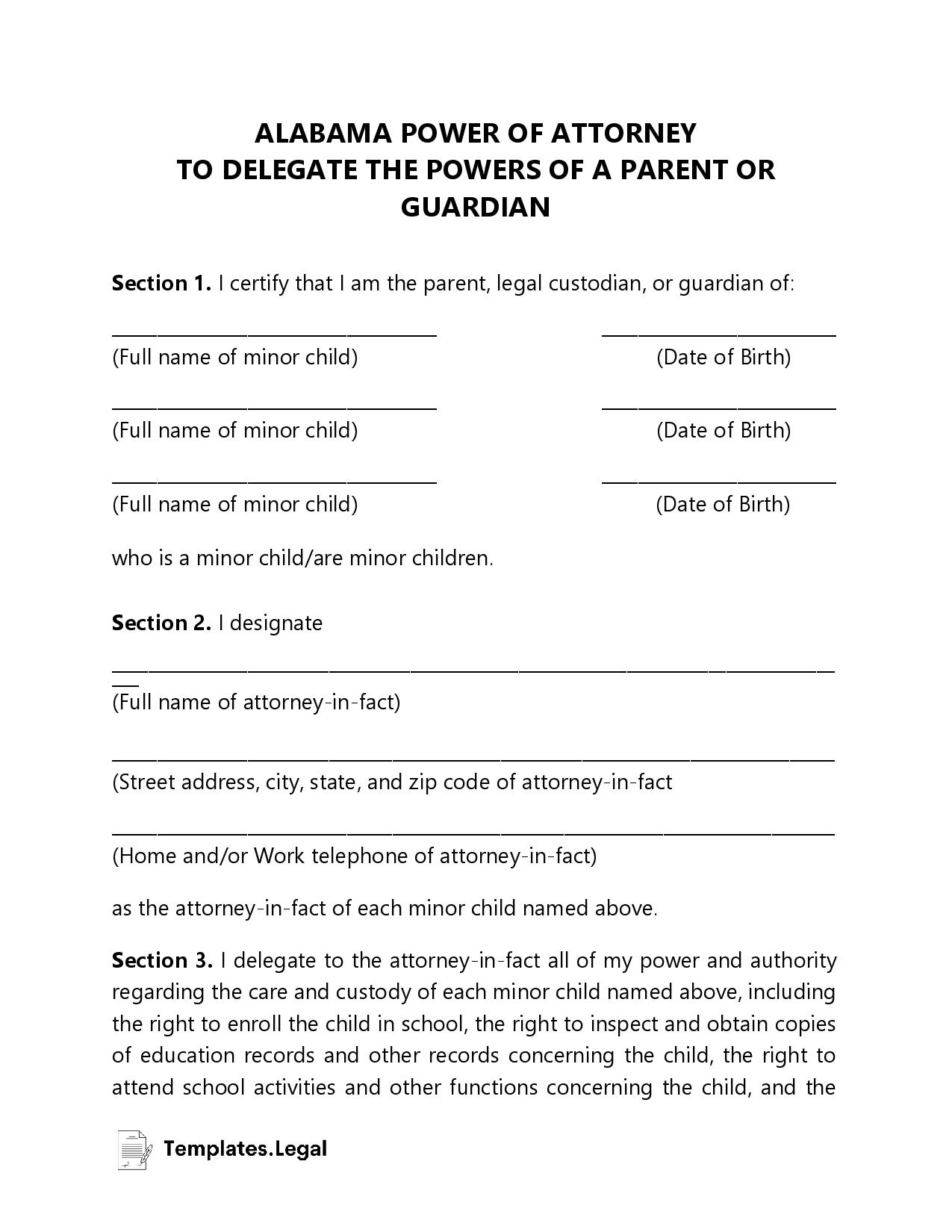
Alabama limits minor power of attorney to a period of up to one year. It excludes some things like consenting to marriage or adoption, and the parent or guardian remains responsible for the child. Parents or guardians can’t use a POA to circumvent juvenile proceedings.
Here are some common questions about PoA in Alabama.
How to Get Power of Attorney in AlabamaYou can find free power of attorney templates online. Fill out one of these forms with two witnesses present and have a notary public seal the form.
How to Revoke a Power of Attorney in AlabamaYou can revoke power of attorney at any time by filling out a revocation form. List the name of the authorized agent, the date of the original PoA form, and have a notary public notarize the form.
How to Notarize a Power of Attorney in AlabamaAlabama law doesn’t require you to notarize your PoA form, but this practice makes the form more genuine. You can notarize documents by filling out and signing the form in front of a notary public who will verify the identity of the principal, attorney-in-fact, and witnesses before applying their seal to the form.